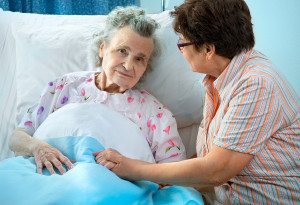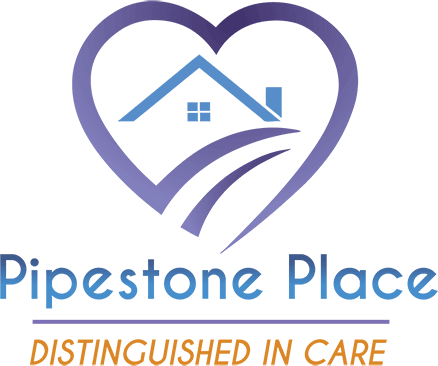Senior Living Awareness: Ovarian Cancer
Senior Living in Alamo Heights, TX
 The National Ovarian Cancer Coalition estimates that 1 in 75 women will face a diagnosis of ovarian cancer at some point in her life. Though it is often seen as uncommon, this rate of diagnosis means that ovarian cancer is the ninth most common cancer in women, and the fifth most common cause of cancer-related death in women. This means that being aware of ovarian cancer and its risks is important for your senior mother in assisted living.
The National Ovarian Cancer Coalition estimates that 1 in 75 women will face a diagnosis of ovarian cancer at some point in her life. Though it is often seen as uncommon, this rate of diagnosis means that ovarian cancer is the ninth most common cancer in women, and the fifth most common cause of cancer-related death in women. This means that being aware of ovarian cancer and its risks is important for your senior mother in assisted living.
The Mayo Clinic lists the risk factors for ovarian cancer as:
• Age. While there is a common misconception that ovarian cancer occurs mostly in women of reproductive age, this is not the case. Though women of any age can develop ovarian cancer, the majority of women who receive this diagnosis are between the ages of 50 and 60.
• Menstrual history. Research suggests that the start and end ages of a woman’s menstrual cycle could impact her risk of developing ovarian cancer. Women who started menstruating prior to the age of 12 or who went through menopause after the age of 52 are at increased risk of this type of cancer.
• Personal health and medical history. Some personal health experiences can impact risk of developing ovarian cancer, including not getting pregnant at any point in life, polycystic ovary syndrome, fertility treatments, and estrogen replacement treatments.
• Lifestyle choices. Women who smoke or use intrauterine birth control devices at any point during life are also at increased risk of ovarian cancer.
Like many forms of cancer, ovarian cancer has subtle symptoms that may be difficult to detect or to identify as these types of symptoms. This makes it critical that you and your parents’ senior health care services provider pay close attention to your aging mother’s health and behaviors so that you can detect any changes that could indicate ovarian cancer.
These symptoms include:
• Back pain that cannot be attributed to any cause and that worsens inexplicably
• Sudden and unexplained weight loss or weight gain
• Heavy feeling in the pelvis
• Unexplained vaginal bleeding
• Sudden loss of appetite
• Increased gastrointestinal symptoms such as gas, nausea, or vomiting
If you notice any of these symptoms in your aging mother, get in touch with her doctor to schedule a thorough examination. The doctor will evaluate her medical history as well as the symptoms that you have identified to determine if there may be another medical condition at play or if they warrant further testing for ovarian cancer.
Just as with many other types of cancer, early detection is key to getting the proper diagnosis and starting the proper course of treatment and management for your elderly mother. Empower your mother in assisted living to pay attention to her health and make sure that she keeps up with her regular health screenings and checkups with her doctor.
Source
http://www.webmd.com/ovarian-cancer/
http://www.cancernetwork.com/ovarian-cancer/ovarian-cancer-elderly-women
http://www.mayoclinic.org/diseases-conditions/ovarian-cancer/basics/definition/con-20028096
For more information about Pipestone Place Assisted Living in San Antonio, TX or to take a tour, call today (210) 718-0211.
- Thank You, Family Caregivers - November 22, 2022
- Fall Activities for Seniors with Dementia - October 28, 2022
- 7 Benefits of Memory Care for Seniors and Their Loved ones - September 26, 2022
